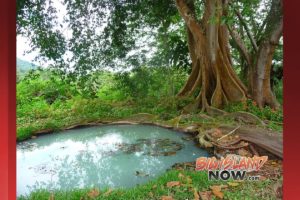Public Meetings on Cesspools in Kona & Hilo
 The Hawai‘i State Department of Health (DOH) announces that they will be holding public informational meetings beginning next week and scheduled through August to explain the impact cesspools are having on drinking water and sensitive surface waters. The meetings will also provide information on possible solutions to the cesspools.
The Hawai‘i State Department of Health (DOH) announces that they will be holding public informational meetings beginning next week and scheduled through August to explain the impact cesspools are having on drinking water and sensitive surface waters. The meetings will also provide information on possible solutions to the cesspools.
Last December, DOH submitted a report on cesspools to the Legislature. Based on an analysis of existing cesspool data and water quality samples collected over the past several months, the department identified 14 priority areas statewide where cesspools are beginning to affect drinking water, streams or beaches. The public informational meetings will be held in Priority 2 and 3 areas identified in the report. These areas include Waimanalo and Ewa on O‘ahu, Kailua-Kona and Hilo on Hawai‘i and Kapa‘a on Kaua‘i.
Meeting Schedule:
- Kailua-Kona, Hawai‘i – Friday, June 29, 6 – 8 p.m., West Hawai‘i Council Chambers, 74-5044 Ane Keohokalole Hwy., Kailua-Kona
- Hilo, Hawai‘i – Monday, July 25, 5 – 7 p.m., University of Hawai‘i at Hilo UCB101, 200 W Kawili St., Hilo
- Ewa Neighborhood Board – Thursday, July 12, 7 p.m., Ewa Beach Public Library, 91-950 North Rd, Ewa Beach
- Kapa‘a, Kaua‘i – Wednesday, August 1, 6 – 8 p.m., Kapa‘a Neighborhood Center, 4491 Kou St., Kapa‘a
- Waimanalo, O‘ahu – Tuesday, May 29, 6 – 8 p.m., Waimanalo Elementary & Intermediate School Cafeteria, 41-1330 Kalanianaole Hwy., Waimanalo
- Cesspools located in Priority 2 areas have the potential to impact drinking water sources. These include the following:
- Kea‘au, Hawai‘i with 9,300 cesspools;
- Kapa‘a/Wailua, Hawai‘i with 2,900 cesspools; and
- Poipu/Koloa, Hawai‘i with 3,600 cesspools.
Cesspools located in Priority 3 areas have the potential to impact sensitive waters. These include the following:
- Hanalei, Hawai‘i with 270 cesspools;
- Hilo Bay, Hawai‘i with 8,700 cesspools;
- Coastal Kailua/Kona, Hawai‘i with 6,500 cesspools;
- Kapoho, Hawai‘i with 220 cesspools;
- Puako, Hawai‘i with 150 cesspools;
- Waimanalo, Hawai‘i with 530 cesspools;
- Ewa, Hawai‘i with 1,100 cesspools;
- Diamond Head, Hawai‘i with 240 cesspools; and
- Waialua, Hawai‘i with 1,080 cesspools.
There is a total of 43,000 residential cesspools statewide that are on a priority list for replacement.
“We urge communities to participate in these important conversations to prevent cesspools from damaging our drinking waters, surface waters, beaches and coral habitats,” said Sina Pruder, DOH Acting Environmental Management Division Chief. “As a community, we all need to act now and explore possible solutions together to protect our health and the environment.”
The 2017 Legislature passed a bill to address the cesspool situation. Signed into law by Gov. David Ige in July 2017, Act 125 requires all cesspools in the state to be upgraded, converted or connected to the sewer system before 2050 unless they are exempted. The law also broadens eligibility criteria for tax credits to offset the costs for homeowners.
The public may direct any questions about the public meetings or cesspools to the DOH Wastewater Branch at (808) 586-4294.






